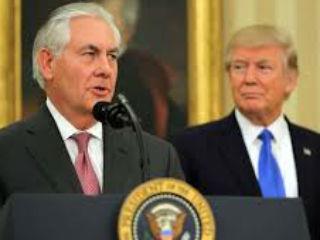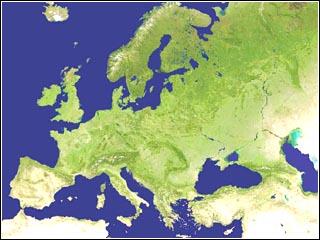by
Hans Izaak Kriek*
The Senate voted 56 to 43, with all Republicans in support and 43 Democrats voting against him. Tillerson got in 2013 the award Russian Order of Friendship from President Putin.
How is he working together with President Donald Trump? What’s happening behind the scenes? Is Rex Tillerson a puppet on a string of the president? Trump, not for the first time, publicly contradicted his chief diplomat on a major foreign policy issue lately, saying via Twitter that Secretary of State Rex Tillerson was ‘wasting his time trying to negotiate with Little Rocket Man’.
Using his nickname for North Korea’s leader, Kim Jong Un, and apparently warning again of a U.S. military response tom its escalating nuclear threat, Trump advised, ‘Save your energy Rex, we’ll do what has to be done’. The tweets came the day after Tillerson, on a visit to Beijing, told reporters the administration had direct lines of communication with North Korea and was probing for a response. “We ask, ‘Would you like to talk?” he said. “We can talk to them, we do talk to them.”
In the meantime, we know that Kim Jong Un don’t want to talk about his nuclear program. Tillerson defended Trump’s early August threat to rain ‘fire and fury’ on North Korea as ‘important . . . to avoid any miscalculation on their part’. But he quickly followed with reassurance that Trump was ‘just reaffirming that the U.S. has the capability to fully defend itself from any attack, and our allies, and we will do so. Tillerson has no previous diplomatic experience and on the world stage, where he has sought to reassure allies that the U.S. under Trump is a reliable partner, many have concluded that his influence is limited.
With White House aides such as presidential son-in-law Jared Kushner and others given a major role in foreign policy, the question of ‘who is responsible for what segment’ of national security remains an open one, said a senior official in the government of a close European ally, speaking on the condition of anonymity to talk about sensitive diplomatic issues. Unpredictability “may be a useful tool with adversaries,” he said, but with allies it creates ‘uncertainty and irritation’.
Recently, Secretary of State warned the leaders of Europe not to invest in certain Iranian businesses as the Trump administration considers walking away from the Iran nuclear deal and reimposing sanctions against Iran. Speaking during a visit to Saudi Arabia he said: “Both of our countries believe that those who conduct business with the Iranian Revolutionary Guard, any of their entities – European companies or other companies around the globe – really do so at great risk. The Islamic Revolutionary Guards Corps maintains monopoly control over large sectors of Iran’s economy. Tillerson’s remarks were the administration’s most pointed warning to date as the Trump administration tries to persuade its European allies to support an effort to reopen the nuclear accord to make it tougher.
European leaders and diplomats from Germany, Britain, France and the European Union have repeatedly insisted that the nuclear deal is working, that Iran is complying with the accord and that no renegotiation is possible. Russia and China, which also signed the agreement, have evinced no interest in a renegotiation. And Iran’s foreign minister, Mohammad Javad Zarif, has warned that Iran would insist on new concessions, such as a return of its nuclear fuel, in any new agreement
The quiet struggle between the Trump administration and its most important European allies has been the focus of much of the jockeying after President Trump decided this month not to certify that Iran was complying with all the terms of the agreement. That kicked to Congress the decision about whether to reimpose sanctions and abandon the accord. Allies of the administration have argued that should Congress decide to reimpose sanctions on Iran, European companies would have little choice but to comply since they would not want to risk being shut out of the $19 trillion American market in favor of Iran’s $400 billion one.
With the Europeans on board, Iran would feel the sting of significant sanctions even if Russia and China do not join. Without the Europeans, however, Iran would feel few effects from sanctions by the United States — the two countries have little trade — while potentially being able to pursue nuclear weapons with the nuclear accord ended. European diplomats have said they would defend their companies against such sanctions, potentially setting up an epic battle between close allies and two of the largest commercial markets on the planet.
Tillerson already eight months in charge and hasn’t put a big stamp on his job, because Trump is leading his department.
*Hans Izaak Kriek is international political commentator and journalist for European Business Review and editor-in-chief for Kriek Media




 By: N. Peter Kramer
By: N. Peter Kramer
